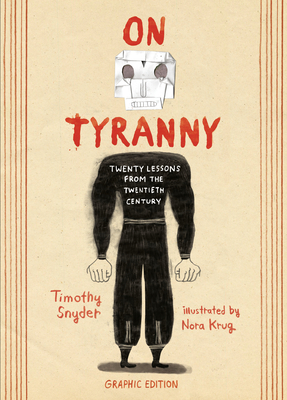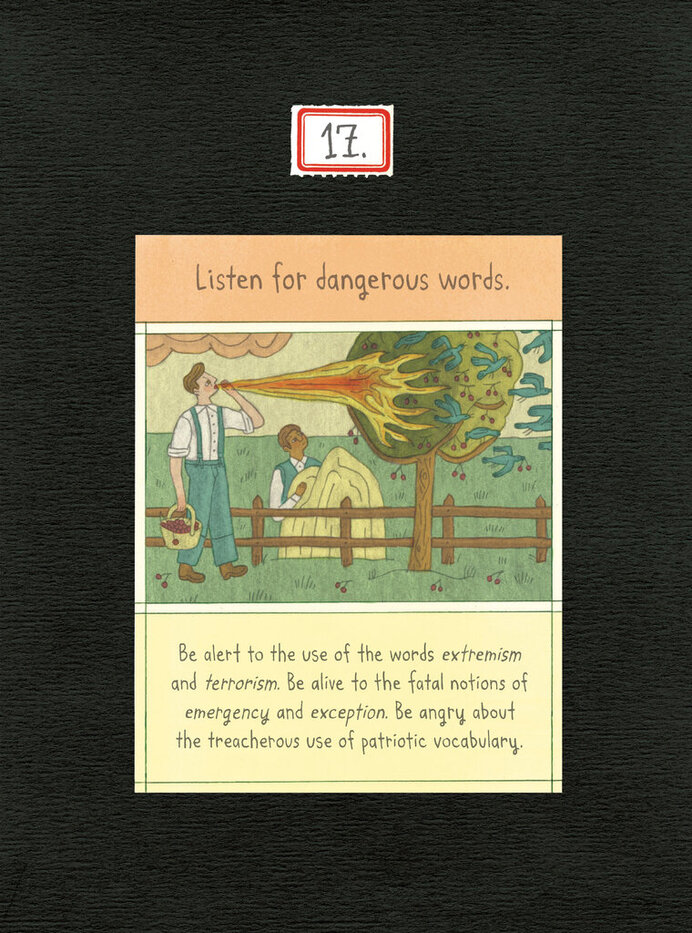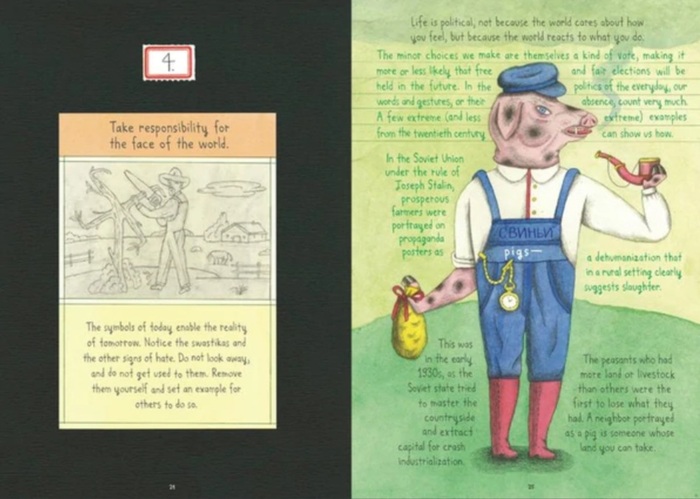What do you think?
Rate this book


128 pages, Hardcover
First published January 1, 2017
“The mistake is to assume that rulers who came to power through institutions cannot change or destroy those very institutions—even when that is exactly what they have announced that they will do.”The short (128 pages) book is presented as a series of twenty instructions on how to combat the rise of tyranny, such as "Defend institutions", "Remember professional ethics", and "Believe in truth". Published in 2017 as a regular pamphlet, the book got an upgrade in 2021, when the illustrated editions with illustrations by renown artist Nora Krug came out.


